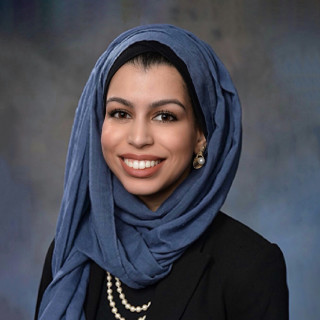I remember the first time I filled out the application for the Affordable Care Act's (ACA's) marketplace insurance for my family, I filled it out a dozen times. I was a medical student and my parents trusted me to understand all the fine details of the different options, premium tax credit, and what they would need for adequate health care coverage. Filling it out, I was shocked at how complex the process was and how much I was struggling with it. I still wonder how other families navigate this convoluted system.
As the political landscape changed the ACA marketplace year by year, it became increasingly difficult to sign up for affordable health care for my mother, especially living in a state that did not expand Medicaid. She fell in the gap between having an income that was too high for state-sponsored health insurance, but that was too low to get insurance tax credit. That left premiums for bare-boned insurance coverage at a price that was nearly 50% of her monthly income. I wondered: what American could afford to spend 50% of their income on health insurance alone? Americans can barely pay rent with minimum wage.
The struggle I’ve experienced getting basic access to health care for my parents is not unique – I see the struggle with my patients, and worry that, perhaps to them, I’m seen as part of a system that actively excludes them. I am spending years training to provide a service that even my family has difficulty gaining access to. This is the biggest dissociation I have with who I am and how I fit within this medical industrial complex, especially as two-thirds of medical school matriculants — my colleagues — come from households that are in the top two income quintiles. We have seen physicians of color struggle themselves to gain equitable care. As medical institutions attempt to bring more minorities into medicine, we must strive to do more than create diversity task forces that make our physician population reflect our patient population – we need to also be proactive about addressing the systemic health inequities that our patients face. I’m increasingly beginning to recognize not only the diversity problem we have with the physician workforce, but what it means to bring in more diverse physicians without increasing access to equitable health care for the communities they come from.
When minority and marginalized individuals are invited into medical education, they are exposed to a power and privilege that has long been absent in their communities. Increasing diversity within the ranks of medicine does not go far enough if we are using this to scapegoat the lack of access to a medical system that was built barring certain groups of people from ever entering. It is a systemic, institutional problem that disenfranchised communities continue to be actively excluded from accessing care. There’s a hidden ethical dilemma in parading “diverse communities” as training program strengths: we are focused on healing patients without addressing the root causes of their medical problems. What does it mean to be in awe of the pathological processes in our textbooks, progressing to the zebras of our board question stems, without taking the time to critically reflect on the reason for this progression? It’s the consequence of a system that devalues primary care, makes it difficult for patients to obtain clinic visits, makes medications largely unaffordable, and so much more that continues to disenfranchise Americans from equitable health care today.
These are the facts: America has the most expensive health care, yet ranks last in performance measures among industrialized countries. Health disparities exist along the lines of race, ethnicity, and socioeconomic class. Even though the ACA initially decreased the number of uninsured Americans in the U.S., that number has been increasing year to year. More coverage will actually save lives. Americans are increasingly avoiding seeking medical care (which leads to poor outcomes) because they don’t understand what their health benefits are. This begs the question — how much more data do we need? What responsibility do we have to the history of the medical industrial complex that has, for decades, exacerbated these problems? What responsibility do we have to bridge the gaps of inequity, and to interrogate institutions that believe the depth of this burden rests on their diversity hires?
It is all physicians' responsibility to to care about how Black and brown patients navigate the complexity of health care and its inequities. The tradition of medicine can learn from community-building and organizing that has been the foundation of justice-building and movements such as organized labor and civil rights, while being cognizant and critical of policies the medical industrial complex helped create. This means working alongside community organizations who have a community-first centered approach to addressing problems within our patient populations. This means critically examining the ways policies and bureaucracy are harming these communities – and the role we may implicitly or explicitly play in reinforcing them. It means working on a policy level to advocate for systems like universal health care that can increase access to health. It also means standing against the silencing, and standing alongside colleagues who aim to bring the lexicon of racism, diversity, and social change into a vocabulary that has historically disenfranchised Black and brown bodies. It is not enough to bring in more diverse medical professionals without educating the entire medical workforce — we must collectively recognize the intersections of race, ethnicity, and socioeconomic status, and work towards building trust in the communities that have grown to distrust medicine.
My parents have a physician for a daughter. That means they have an advocate who has painstakingly seen the drudges of an inefficient system, who has argued on the phone in the trenches with bureaucracy for the vulnerable, and who can understand, and then translate, the jargon that dictates the workings of the most intimate parts of themselves. I do not for a moment take this privilege for granted, and yet I am equally stunned by how difficult it is to navigate a system I work for. I am disheartened that others in my community and communities like mine do not have the same privilege granted to them. I am ultimately left to reflect on how that failure, if we are not careful, ends up on the shoulders of those of us in medicine who can never forget where we come from. As long as inequity is present, I will continue to do my duty – to my parents, to my patients – but I envision a future in which we dismantle the wrongs of our predecessors and help those who have been unjustly hurt by the bureaucracy of medicine.
How would you begin to dismantle the bureaucracy of medicine? Share in the comments.
Dr. Zainab Mabizari is an internal medicine resident in the social medicine residency at Montefiore. She completed her medical education at Baylor College of Medicine and received a master’s in Narrative Medicine from Columbia University. Pandemic permitting, you can often find her reading in a coffee shop or performing poetry at a local open mic. She is a 2020–2021 Doximity Op-Med Fellow.







